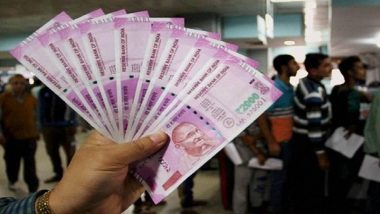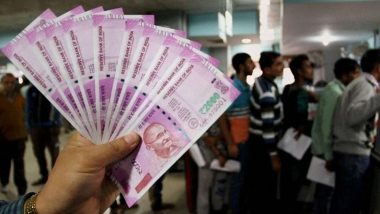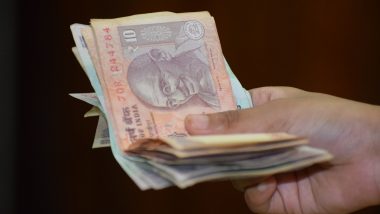New Delhi, Mar 6: Although the 7th Pay Commission has been regarded as the "worst pay commission" by the National Joint Council of Action -- a concerted body of unions -- it did brought some amount of cheer for the government employees who have been waiting for pay increment for over a decade. But employees of the Indian Council of Agricultural Research (ICAR) have been deprived of the 7th CPC benefits, despite it being notified by the Union Cabinet over 18 months ago.
Tired of the unprecedented delay, 5,000 agricultural scientists associated with the ICAR launched a protest from this Monday. The employees have been wearing a black ribbon band to work as a mark of dissent against the government.
The protest was observed at over 100 ICAR-run institutes across the nation, claimed the Agricultural Research Service Scientists Forum (ARSSF). The employees claim they have been patiently raising the matter with the ICAR and the Finance Ministry since late 2016.
After November 2017, when most of the anomalies related to 7th CPC were settled by the high-level committee chaired by the then Finance Secretary Ashok Lavasa, the ARSSF petitioned the Finance Ministry again seeking addressal to their plight.
The Finance Ministry officials assured them of the earliest implementation of salary hike, along with clearance of all arrears by January 2018.
The employees have threatened to escalate their protest if the matter remains unresolved in the next few days.
When was 7th Pay Commission implemented for other government employees?
The 7th CPC report prepared by Justice (retd) A K Mathur-led panel had submitted its report to the government in January 2016, which was the scheduled month for the Pay Commission's roll-out.
However, the report was reviewed by the Empowered Committee of Secretaries for the next six months.
After consultations with stakeholders and inputs derived from the NJCA, the government approved the 7th CPC recommendations in July 2016, hiking the salary of government employees using 2.57 as the fitment factor.
The NJCA, however, marked its dissent over the multiplying factor used for pay increment, demanding the government to use 3.16 as the fitment factor for raising the salary of Group C and Group D employees.
NJCA chief Shiv Gopal Mishra had threatened a mass-strike from July 11, 2016, if the government does not addresses its demand. However, the strike was deferred after the Centre formed a high-level committee to look into the anomalies raised by the unions.
Following the recommendations made by the high-level committee, the government decided to retain a number of allowances which were recommended to be abolished by the original pay commission report. The HRA was also hiked beyond the recommendation of Justice Mathur-led panel's report.
However, the fitment factor to multiply the basic wages remained unchanged.
(The above story first appeared on LatestLY on Mar 07, 2018 12:00 AM IST. For more news and updates on politics, world, sports, entertainment and lifestyle, log on to our website latestly.com).













 Quickly
Quickly




















